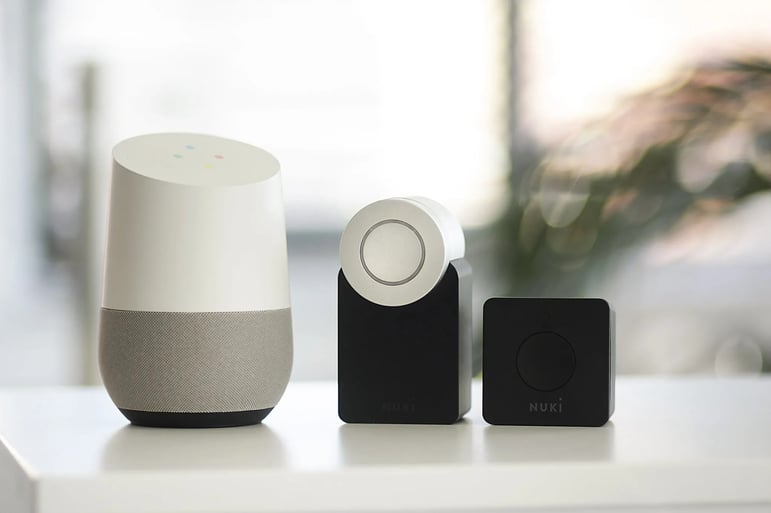Matter: What it is and why it matters for smart home support

These days, one of the biggest issues facing the smart home industry is that of interoperability.
When a customer adds a smart device to their home, they aren’t just adding the device. Most of the time, they’re adding a proprietary app or hub too. And that doesn’t necessarily work with any other devices or hubs they already have.
This can quickly become a matter of frustration for customers, both when setting up and when using their system.
As that frustration grows, it can lock smaller smart home companies out of the market. Customers will go for brands that have as many of the devices they want as possible to avoid extra management tools.
That’s what CHIP wanted to solve.
In 2019, the Connected Home over Internet Protocol (CHIP) initiative was introduced to help solve these frustrations. The idea was that tech companies across the industry, including Apple, Google, Amazon, and others, would come together to create a plan—and an industry-wide standard—for smart device interoperability.
Fun fact, it wasn’t a proprietary approach either. The whole thing is a royalty-free, open-source project on GitHub.
Now, it’s been rebranded as Matter.
In May, CHIP got rebranded as Matter. It also got a whole new logo and a new name for the alliance, the Connectivity Standards Alliance.
More than being a rebrand, this is big news. It signals that the industry-wide standard started with CHIP is ready to hit the market. In fact, devices will start being certified later this year.
This news comes on the heels of other recent announcements surrounding interoperability between the big players. For example, at the end of May, Google announced that Nest thermostats could officially work with Apple HomeKit. That’s the first time this has happened in the industry, and is a big step for movements like this.
So what is Matter?
Matter is both a standard and network technology designed to help smart devices with interoperability. Devices marked by the Matter logo, which will appear both on the product and its packaging, will be recognizable to customers and other brands as ones that can work with other devices.
Specifically, these devices will use a series of QR or numeric codes to connect to Matter. Through this connection, they can be controlled by Google Assistant, Amazon Alexa, and/or Apple Siri—even if the customer uses more than one in their home.
“As these different devices become more complex networks, it’s all the more important that they’re all talking the same language,” said Tobin Richardson, chief executive of CSA, in an interview earlier this year. “That mark will be a helping hand to make sure that you can add whatever lightbulbs, whatever door locks, whatever you want to add.”
Why Matter matters for smart home brands
These recent steps toward industry-wide interoperability are big news for smart home brands for a few reasons.
First, it means that smart home brands don’t have to make every possible device out there just to have any sort of foothold in the industry. Instead, they can choose to focus on their specialties if they want to, without needing to worry about whether an additional hub will frustrate customers.
Second, it creates healthy competition in the market because it gives smaller companies a way to compete with larger ones. They aren’t automatically excluded from customers’ homes because of the customer’s preference to avoid multiple apps or hubs.
But this introduces a few issues, too. After all, it’s one thing to introduce such a wide, open network of options to customers. It’s another to support it.
The issue of interoperability
For Matter-certified devices, your agents are going to need to manage new types of calls. They’re going to need to know how to manage integrations between your devices and the main voice command. You may even receive calls now where the issue isn’t your device connecting to the network, but the assistant—or even the assistant connecting to your device.
Interoperability introduces a whole pile of new unknowns to your support team. And they may not have the visibility they need to resolve issues to the customer’s satisfaction.
The issue of volume
More customers are always a good thing, but they do come with the promise of extra work for your support team.
On top of all the potential new issues you could discover, Matter-certified devices will be more appealing (and more accessible) to customers. This could mean an influx of support calls as they set up and use these devices.
